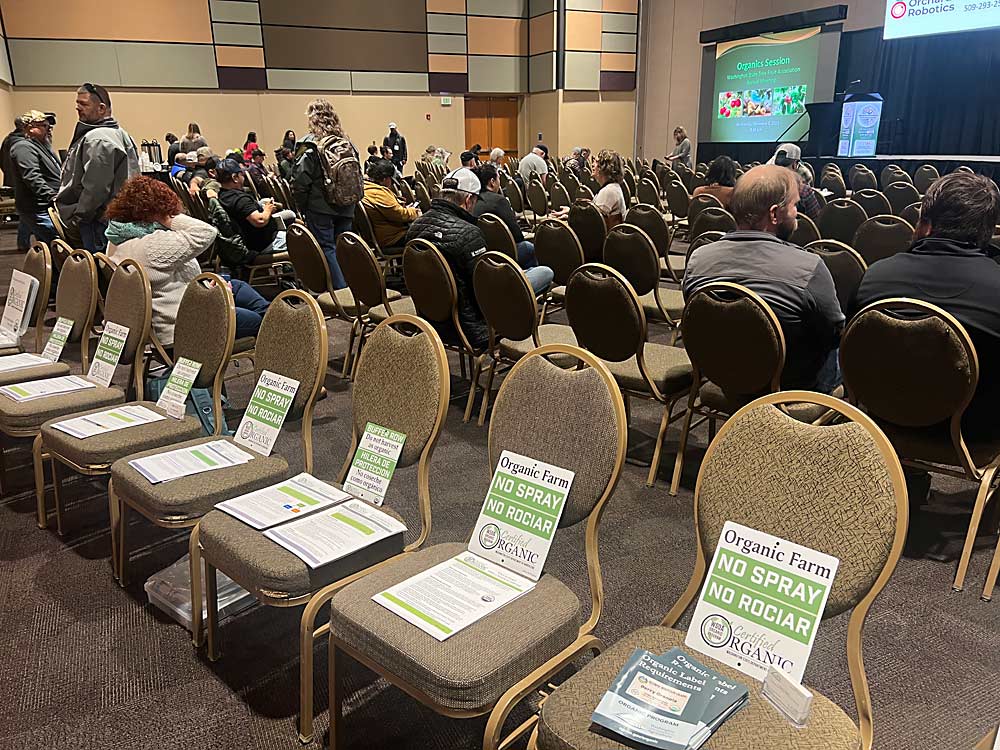
American households bought fewer apples this year.
A 1.5 percent decline in households purchasing apples may not sound like much, but “that’s 1.8 million households that purchased apples last year that didn’t this year,” said Steve Clement, CEO of Sage Fruit Co.
He spoke during a session on “Finding value in challenging times” on the final morning of the Washington State Tree Fruit Association’s annual meeting in Kennewick Dec. 6.
“I would suggest that value is not to be found, value gets created,” Clement said, citing opportunities to expand apple consumption among younger consumers and solo households, which buy far fewer apples than older consumers and families with children.
Even just increasing apple consumption by 10 percent would expand demand by 13 million boxes, he said.
“The consumer trends are sobering, but it shows the upside potential of what we can accomplish,” he said. “I would like to ask this industry to consider advertising our dang product.”
In the organics section, Brenda Book of the Washington State Department of Agriculture discussed changes to the federal organic standards, which include a mandate that all nonretail containers — think bins, totes and boxes that leave the farm for the warehouse — must be labeled as organic with a lot number connected to records. Also, everyone involved with trade — even brokers, sales desks and other folks who don’t physically handle the fruit — must go through the certification process.
The new rule, called Strengthening Organic Enforcement, includes the most significant changes in 20 years, Book said, and they are in response to fraud in domestic and international markets. The rule will take effect March 19.
Fees will increase, too, she said. The state organic program receives no tax subsidies.
Washington’s organic program is the largest and oldest state-run certification agency in the United States, she said.
Other speakers discussed trends, marketing, managing fruit decay and production costs.
David Granatstein, a retired Washington State University sustainable agriculture specialist, told growers that market prices have generally continued to rise for apples and pears along with volume. Cherries, not so much. Prices have stayed flat even though production has come down, partly because of small crops in recent years and partly due to little cherry disease, he said.
—by Kate Prengaman and Ross Courtney






Leave A Comment